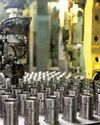Change is constant. And lately, very frequent. A look at how companies and B-schools are gearing up to manage disruptions.

Anyone who was born before the ‘80s witnessed an era where things changed every two to three years. After 1990, however, India saw change like never before. And in the past 10 years, with the advent of technological disruptions, the changes in the business environments have been at a rapid pace.
What hasn’t changed much, however, is the traditional, two year full-time MBA that still comes with a fixed curriculum, loads of assignments and a promise to make students ‘industry-ready’. While regular workshops, live projects and seminars are also organised under the garb of ‘industry-academia interface’, these short-term steps aren’t helping. The industry is constantly complaining about how management students lack awareness and understanding of the real world.
Anand David, director at SEEK and founder director of Manford, asks a pertinent question that most corporates have, “Do the professors at B-schools have the slightest clue of what their graduates go through in the first few years of corporate life? If yes, why is there a huge difference between what is taught and what it practiced in the corporate world? There is an urgent need to make management education more relevant. There should be deeper research on what organisations need, the pain areas, challenges, etc.” Though it’s a bold point of view that may rub a few people the wrong way, David is simply stating what corporates are facing with respect to new joinees.
This story is from the {{IssueName}} edition of {{MagazineName}}.
Start your 7-day Magzter GOLD free trial to access thousands of curated premium stories, and 9,000+ magazines and newspapers.
Already a subscriber ? Sign In
This story is from the {{IssueName}} edition of {{MagazineName}}.
Start your 7-day Magzter GOLD free trial to access thousands of curated premium stories, and 9,000+ magazines and newspapers.
Already a subscriber? Sign In

MEMORIES & IMPRESSIONS
Ratan Tata was an exceptional human being. He was a visionary leader, esteemed industrialist, and a humanitarian, who left an indelible mark on India and the world.

The Robotaxi Market
The robotaxi market is shaping up to be a high-stakes battleground as tech giants and automakers race to transform urban mobility.

And the Nobel Prize Goes to AI
The recent Nobel Prize T awards to AI pioneers affiliated with Google have sparked a broader conversation about Big Tech's influence on research and the limitations of traditional prize categories.

Ola Electrified
Once considered a trailblazer in India’s electric vehicle (EV) ecosystem, Bhavish Aggarwal’s Ola Electric now faces a major accountability crisis.

Sharp Slide in Industrial Output on Eve of Deepavali
India’s index of industrial production (IIP) saw a sharp reversal in August, contracting by 0.1 per cent, in stark contrast to the 4.7 per cent growth in July, mostly because of significant contractions in mining and electricity generation.

Heralding the Solar Era with Sustainable Electrification
RAJEEV KASHYAP on the economics of solar power, the hurdles in scaling it, and much more

A WELL-GREASED MACHINE
The OmniBook X14 laptop runs on first-generation Snapdragon X Elite, which bets big on Al-enabled productivity and battery life, but falls short when it comes to overall experience, says Deep Majumdar

DO NOT LETA HEALTH CRISIS RUIN YOUR FINANCIAL HEALTH
For a family of four living in a metro, it is recommended to opt for a family floater health insurance plan with a sum insured of at least Rs 15-20 lakh

Disruption Ahead: Beyond Organisation Charts and Structures
ALBERT EINSTEIN FAMOUSLY said, “We cannot solve our problems with the same thinking we used when we created them.

Dr. Rahul Shivajirao Kadam: A Visionary Leader Blending Sustainability, Innovation, And Social Empowerment
We are on the stage of global warming, and these technologies not only help prevent further damage but also leave behind a better environment for future generations.